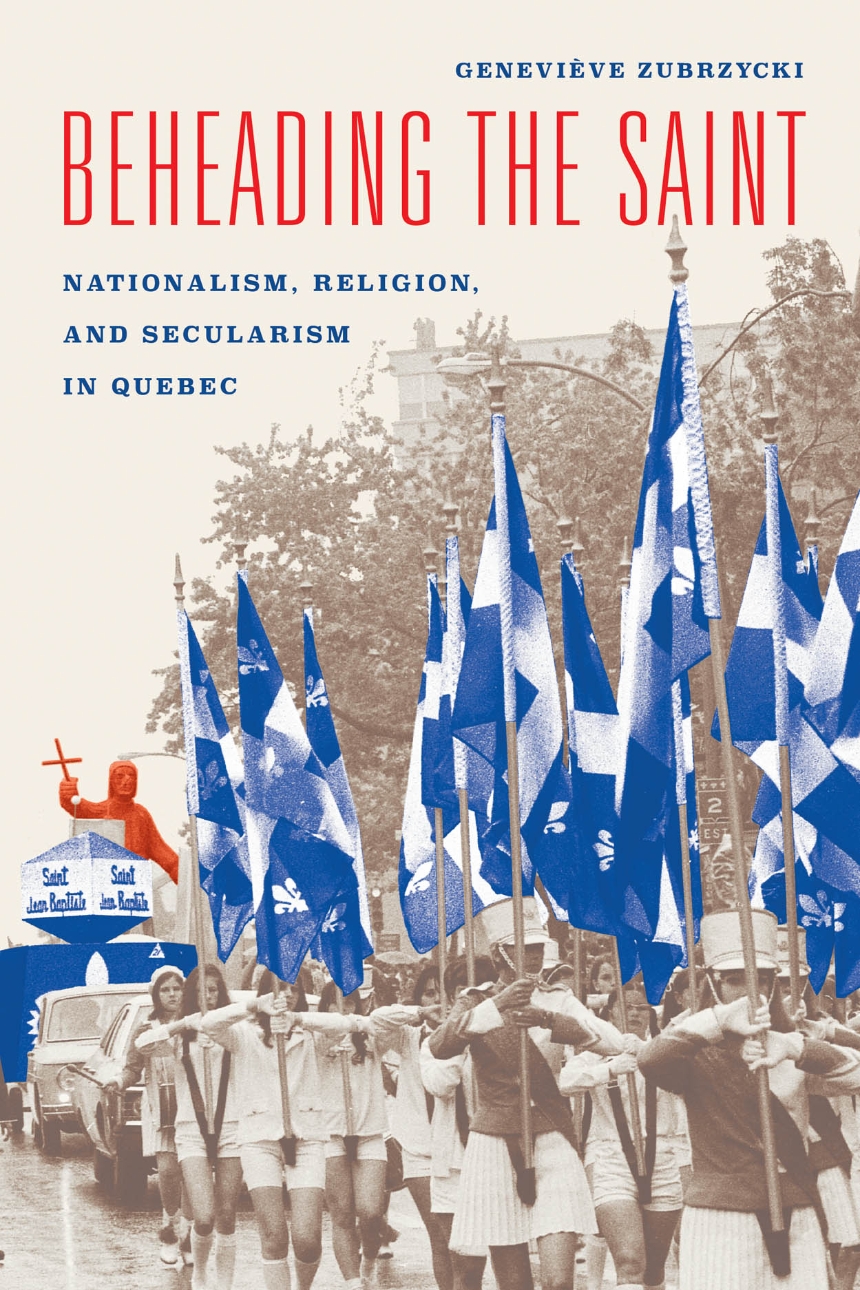Beheading the Saint
Nationalism, Religion, and Secularism in Quebec
Beheading the Saint
Nationalism, Religion, and Secularism in Quebec
In Beheading the Saint, Geneviève Zubrzycki studies that transformation through a close investigation of the annual Feast of St. John the Baptist of June 24. The celebrations of that national holiday, she shows, provided a venue for a public contesting of the dominant ethno-Catholic conception of French Canadian identity and, via the violent rejection of Catholic symbols, the articulation of a new, secular Québécois identity. From there, Zubrzycki extends her analysis to the present, looking at the role of Québécois identity in recent debates over immigration, the place of religious symbols in the public sphere, and the politics of cultural heritage—issues that also offer insight on similar debates elsewhere in the world.
224 pages | 8 color plates, 54 halftones, 1 line drawing | 6 x 9 | © 2016
History: General History
Religion: Religion and Society
Sociology: Collective Behavior, Mass Communication, Social Change, Social Movements, Political Sociology
Reviews
Table of Contents
Abbreviations
1 From French Canada to Québec: An Introduction
Key Trope: Anticolonialism and Language
Part One Making and Unmaking of French-Canadianness
2 The Iconic Making of French Canadianness
Key Trope: The Family
3 Iconoclastic Unmaking: The Quiet Revolution’s Aesthetic Revolt (1959–69)
Key Trope: The Soil
Part Two Making and Debating Québécois-ness
4 Iconographic Remaking and the Politics of Identity: The Ambiguous Reinvention of the Fête
Key Trope: The Sheep
5 Nationalism, Secularism, and Cultural Heritage
Key Trope: The Flag
6 Conclusion: Toward a Cultural Sociology of Identity Transformation
Appendix A Historical Cues
Appendix B Parade Themes
Appendix C Methods and Sources
References
Index
Awards
ASA Political Sociology Section: Distinguished Contribution to Scholarship Book Award in Political Sociology
Won
International Society for the Sociology of Religion: ISSR Best Book Award
Won
Canadian Sociology and Anthropology Association: The John Porter Prize
Won
